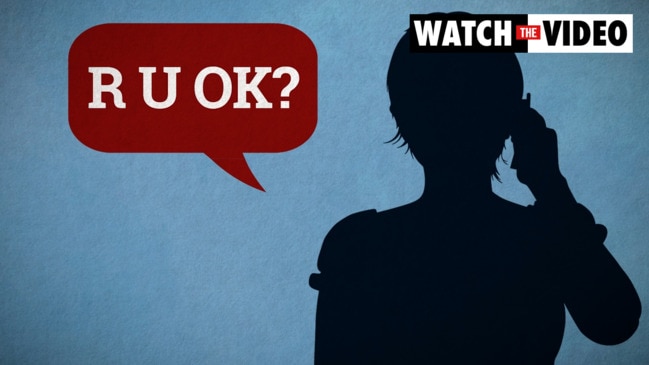Research shows link between mum’s mental health and her child’s emotional development
A study of more than 4000 Aussie children shows kids whose mums were highly stressed while pregnant, or after giving birth, are twice as likely to develop emotional and behavioural issues.

Lifestyle
Don't miss out on the headlines from Lifestyle. Followed categories will be added to My News.
- How Gen Alpha are different from their big brothers, sisters
- The things that matter most for parents in 2020
Sweeping research has found women who experience psychological distress during pregnancy and after the birth of their baby are twice as likely to have kids who develop emotional and behavioural issues.
The findings have been drawn from a study of 4,300 Australian children commissioned by Adelaide-based national infant and child mental health advocate Emerging Minds.
The longitudinal study looked at the role of parenting, parents’ mental health and health behaviours on the social and emotional wellbeing of children between the ages of four to five, and again at 12 to 13.

Emerging Minds director Brad Morgan, who also heads up the National Workforce Centre for Child Mental Health, said the research highlighted the need for broader ante and post-natal support for parents.
He said while worrying, the statistics didn’t come as a surprise but rather substantiated what families have been long saying.
“A strong mother-child bond that develops in the early years of life is the foundation for a child’s healthy emotional development,” Mr Morgan said.
“Every parent wants the best for their child, however when parents are experiencing poor physical health, financial adversity or job insecurity – or a combination of all three – it naturally affects their relationships, including the one they have with their child.
“This research shows us that even in pregnancy, when stresses or mental health challenges pop up, these can have an impact on the unborn child.”

Mr Morgan said the research showed care provided to women before and after birth needed to move beyond the physical health of mum and bub.
“(By) supporting a mother’s mental health, we can go a long way to strengthening the bond between mother and newborn baby,” he said.
“If left, emotional and behavioural issues in childhood can develop into mental health concerns later in life – (we know) more than half of all adult mental illnesses emerge in childhood.”
According to the study, about 43 per cent of children who experienced elevated emotional issues and difficulty interacting with their peers at age 10 and 11 had mothers who had experienced moderate to high levels of psychological distress in pregnancy, or after giving birth.
This compares to 18 and 22 per cent of similarly-aged children whose mothers had experienced low levels of distress.
Mr Morgan said he hoped the study would drive a rethink of policy and program delivery to extend to a more “whole-of-family” approach.

“How do we provide more wrap-around support for parents in general so they are supported to have really good relationships with their kids, (particularly) during really tricky times?” he said.
“As a community and among professionals working with families, our understanding and
awareness of what impacts a child’s emotional and social wellbeing is growing …
early intervention and prevention is key in changing outcomes,” he said.
Children’s emotional problems included worrying, unhappiness and being tearful, nervousness and clinginess in new situations, and being fearful and easily scared.
Peer problems ranged from tending to play alone, getting along better with adults than children, and being picked on or bullied by other children.

